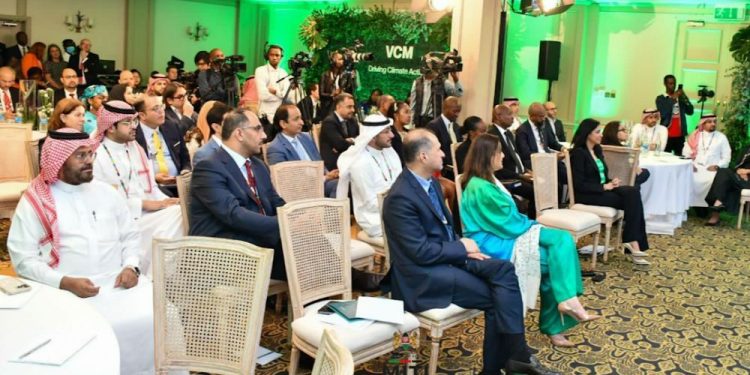

Kenya has sold more than 2.2 million tonnes of Carbon Credits at the Nairobi Auction to Saudi Arabia firms, the largest such transaction in the world.
This purchase took place Wednesday. This voluntary auction witnessed the presence of other delegates from Kenya, Rwanda, Egypt and South Africa in what organizers said was the biggest such sale of its kind in the world.
“Some 16 Saudi firms, who participated at the auction, included Aramco and Saudi Electricity Company, which paid 23.50 Saudi riyals ($6.27) per metric tonne of carbon credits. Other participants included Saudi Airlines also took part,” said Regional Voluntary Carbon Market Company (RVCMC), CEO Riham ElGizy.
Kenya is a favourite carbon credit destination
RVCMC said carbon credits auctioned from Kenya come from projects that avoid emissions by using sustainable technologies or removing carbon from the atmosphere. He added that RVCMC was walking the talk and had picked on Nairobi as its choice destination, based on emerging climate change issues happening in Africa.
RVCMC, which said it will roll out a full-time exchange in Riyadh in the first six months of 2023, was founded by Saudi Public Investment Fund and Saudi Tawadul Group.
RVCMC held its first auction of 1.4 million tonnes of carbon credits in Riyadh in October 2022.
Experts argue that demand for carbon offsets, generated through projects such as tree planting or using cleaner cooking fuel, is expected to grow as companies seek to use the credits to help meet net-zero emissions goals.
Companies see the voluntary carbon market as critical in assisting them to meet environmental targets by allowing investment in projects that lock away climate-warming emissions that they are unable to eliminate from their operations.
Observers maintain that as more companies in Kenya and worldwide target net-zero emissions by 2050, demand for offsets is bound to increase, although concerns around the quality of some projects have deterred many firms, prompting climate campaigners, industry and other potential buyers, to push for more stringent regulations.
Consultants McKinsey projects the annual global market for voluntary carbon credits to hit US$50 billion by 2030. This growth is projected against the background of growing concerns that the carbon offset market is opaque and has a limited supply of credits.
ElGizy said RVCMC works with separate, independent teams of experts to vet projects that contribute credits for sale and eliminates any red flags from its auctions.
|